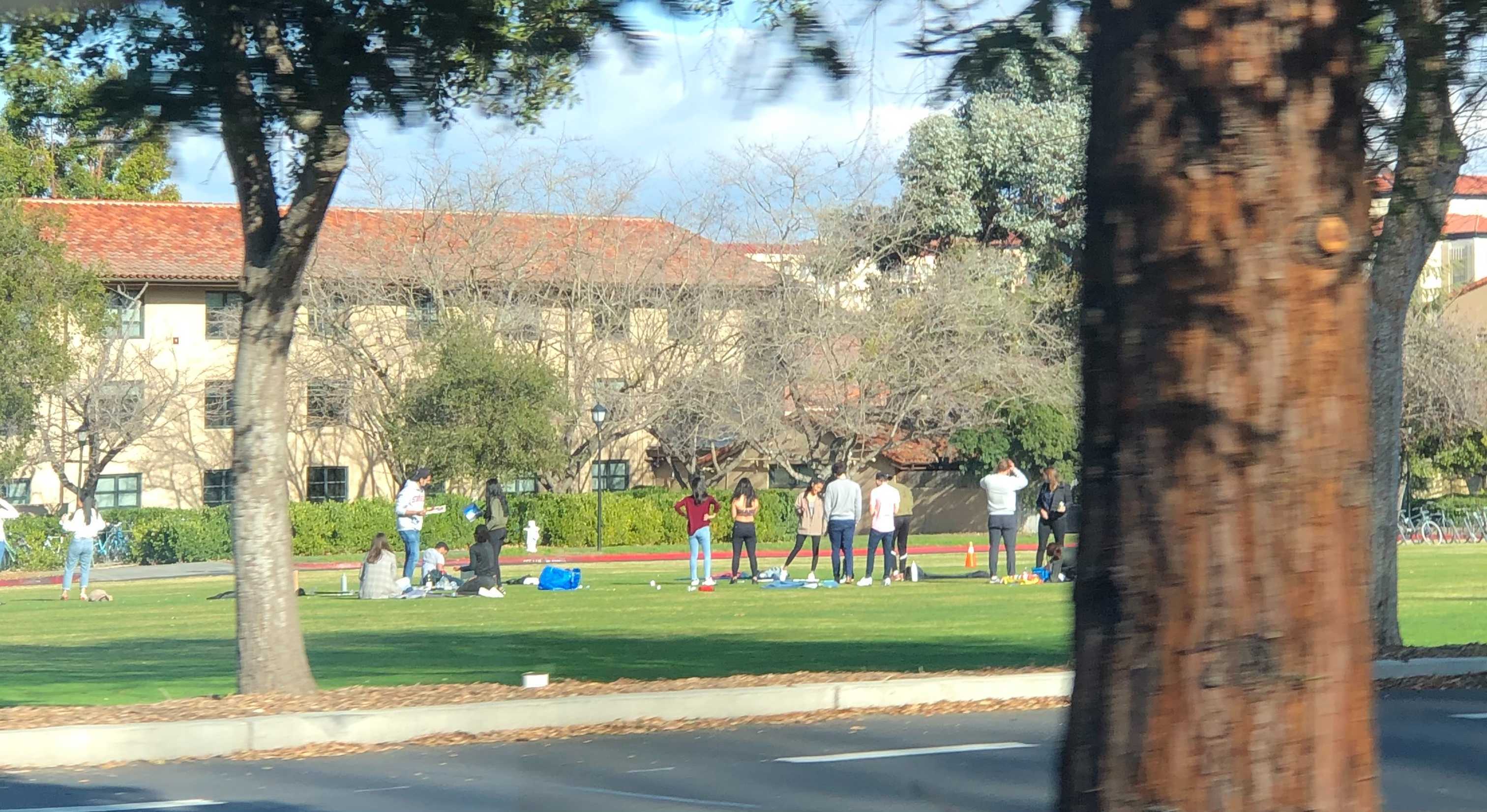It’s frustrating to have a pandemic put your life on hold. But what’s even more frustrating is seeing how others are handling (or not handling) the COVID-19 pandemic. Despite the hundreds of thousands of people that have died and the millions that have lost their job, their house or a loved one, some Stanford students continue to party. These students have broken social distancing guidelines, needlessly putting themselves and others at risk. However, it’s undeniable that the Stanford administration’s lack of clear policies and enforcement is also to blame.
As someone who has been at home for the past two quarters, it is deeply disappointing and infuriating to hear reports of students having gatherings that clearly violate social distancing guidelines. Recently, the Fountain Hopper reported that approximately 100 students gathered on campus for a party. The Graduate School of Business has held wine parties for the sake of “networking,” as if networking is an essential activity. Across social media, I have seen Stanford student house parties in several cities and trips to San Francisco for recreational purposes, which endanger the communities of these locations. Some students even participate in both on-campus and off-campus parties. Actions like these can easily spread the virus across campus and in the surrounding area, risking a surge in cases.
The disregard for human life and the health of students who need to be on campus for financial and other personal reasons is truly upsetting. When Stanford wrote in my acceptance letter that I was now a part of a “campus community with a shared determination to make our world better,” they apparently did not mean the entire community.
To those partying, no, I am not jealous of your irresponsible behavior. Yes, I am aware the pandemic has inconvenienced most of us. Most of our lives have gone downhill in some way and our mental health has taken a turn for the worse. But this is not a time to “let you live your lives” as if everything was normal. We’re in a pandemic; nothing is normal. And if “living your life,” taking advantage of special circumstance housing and having the “college experience” risks harm to others, it’s a problem.
I am a first-generation, low-income frosh. I understand what these students are going through. I have never been to Stanford’s campus, and I am having a hard time learning in this online environment. I feel a great disconnect between myself and my peers. Making friends, something everyone looks forward to during their freshman year of college, has been hard over Zoom. I was looking forward to the independence of the college experience and leaving my hometown to explore a new place. My mental health, while not the worst it has been this year, is not that great right now. I was gravely disappointed by the reversal for reopening campus for fall quarter and then the last-minute cancelation for winter quarter. Despite this, I decided not to stay on-campus. Although I would greatly benefit from having a quiet space, I decided against it because I did not consider my circumstances so dire as to expose myself to the slight risk of catching and spreading coronavirus. Even with everything I’m going through, I would not go to a party right now. It won’t solve anything. All it does is risk spreading the virus to students who need housing and are living on campus because they have no other options.
With that being said, I can’t fully blame students for behaving badly when the University has not enacted sufficient preventative measures. Putting all the weight on individuals when there have been systemic failures is, frankly, unfair. While students have a responsibility to their peers, Stanford’s administrative leadership is not doing much to discourage or enact consequences to these irresponsible actions. Looking at the Campus Compact, while it does outline the basic COVID-19 policies for Stanford, it does not go into specifics regarding what type of interaction and activities are allowed outside of households. And given that households are a small group of “trusted individuals” within a residence, wouldn’t it be isolating for students who are placed in a dorm separated from their friends? Students are left unsure of what is and is not allowed, with RAs not providing this information, and those who prioritize caution are left lonely.
Given Stanford’s unclear policies in the campus compact and failure to provide fun COVID-safe spaces and activities for students, can we expect students to hold themselves accountable?”
The answer to that is yes and no. Yes, we should expect students to act responsibly and not do whatever they please right now. But the administration needs to provide resources to help with the boredom and mental health issues created by the on-campus situation to prevent foolish gatherings and unnecessary travel. Acceptable activities, such as outdoor movie nights or socially distanced yoga, would allow for monitored activities and minimize isolation, especially for those who are cautious.
Additionally, Stanford has not clearly defined what and what isn’t allowed in the first place. This is especially worrying because of how the campus compact is presented — namely in a punitive manner but without widespread enforcement. Rather, the university should present and initiate alternatives to regular social activities for students, just as other institutions have shifted our day-to-day activities to suit the needs of the pandemic, both physical and mental. Do better: the only way for things to change is to take action immediately.
